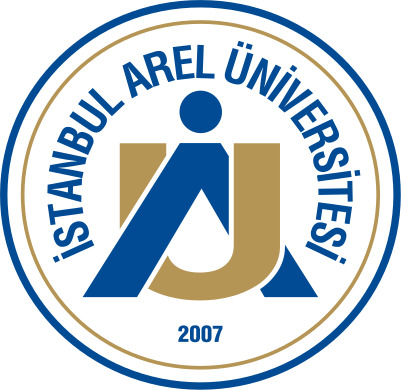International Trade
Overview
<!-- wp:paragraph --> <p><strong>Program Description</strong><br><strong>International Trade at Istanbul Arel University: Shaping Global Business Leaders</strong></p> <!-- /wp:paragraph --> <!-- wp:paragraph --> <p>The International Trade program at Istanbul Arel University is designed to equip students with the knowledge and skills necessary to navigate the complexities of global commerce. With a focus on international trade policies, economics, logistics, and cross-cultural communication, this program prepares graduates to engage with the global economy and manage the challenges and opportunities that arise in the international marketplace. Through a curriculum that blends theory with practical applications, students will gain an understanding of international market dynamics, trade agreements, supply chain management, and global economic trends, making them highly competitive in the fast-paced world of global business.</p> <!-- /wp:paragraph --> <!-- wp:paragraph --> <p><strong>Program Mission and Vision</strong><br>The mission of the International Trade program at Istanbul Arel University is to cultivate the next generation of global business leaders who can effectively manage international trade operations, promote economic growth, and foster global cooperation. The program aims to provide students with a comprehensive understanding of global markets, trade regulations, and economic strategies, preparing them to contribute to businesses and governments in an increasingly interconnected world. The vision is to create professionals who can navigate the complexities of international trade, facilitate cross-border commerce, and drive innovation in global business practices.</p> <!-- /wp:paragraph --> <!-- wp:paragraph --> <p><strong>Curriculum Structure</strong><br>The International Trade program offers a robust curriculum designed to provide students with a deep understanding of global markets and the skills needed to manage international trade operations. Key areas of the curriculum include:</p> <!-- /wp:paragraph --> <!-- wp:paragraph --> <p><strong>Introduction to International Trade</strong>: This foundational course covers the basics of international trade, including trade theories, market structures, and the role of international organizations. Students gain insight into the global business environment and the economic principles that shape global trade relations.</p> <!-- /wp:paragraph --> <!-- wp:paragraph --> <p><strong>Global Economic Environment</strong>: Students study the global economic system, including macroeconomic indicators, economic growth, international financial systems, and the impact of economic policies on trade. The course provides a solid understanding of how global economic factors influence international business.</p> <!-- /wp:paragraph --> <!-- wp:paragraph --> <p><strong>International Trade Policies and Agreements</strong>: This course explores the various policies and agreements that govern international trade, including trade barriers, tariffs, free trade agreements, and international regulations. Students gain an understanding of how governments, international organizations, and businesses influence trade relations.</p> <!-- /wp:paragraph --> <!-- wp:paragraph --> <p><strong>International Marketing and Consumer Behavior</strong>: Students learn about the strategies and challenges of marketing goods and services internationally. Topics include market entry strategies, cultural differences in consumer behavior, and the adaptation of marketing campaigns for diverse global markets.</p> <!-- /wp:paragraph --> <!-- wp:paragraph --> <p><strong>Logistics and Supply Chain Management</strong>: This course covers the logistics and operations involved in international trade, including transportation, warehousing, customs regulations, and inventory management. Students learn how to manage supply chains across borders and optimize global logistics operations.</p> <!-- /wp:paragraph --> <!-- wp:paragraph --> <p><strong>International Business Law and Ethics</strong>: Students are introduced to the legal frameworks that govern international trade. This includes trade contracts, dispute resolution, intellectual property rights, and ethical considerations in global business practices.</p> <!-- /wp:paragraph --> <!-- wp:paragraph --> <p><strong>Foreign Exchange and International Finance</strong>: This course focuses on the financial aspects of international trade, including foreign exchange markets, international banking, international investment, and risk management strategies for global businesses. Students learn how to manage financial transactions across borders.</p> <!-- /wp:paragraph --> <!-- wp:paragraph --> <p><strong>Cross-Cultural Communication and Negotiation</strong>: In this course, students develop the communication skills necessary to engage in business negotiations across cultural boundaries. They learn about the importance of cultural awareness, language barriers, and negotiation techniques that are effective in international settings.</p> <!-- /wp:paragraph --> <!-- wp:paragraph --> <p><strong>E-Commerce and Digital Trade</strong>: As digital commerce becomes increasingly important, this course examines the role of e-commerce in international trade. Students learn about online trade platforms, digital payment systems, and how digital transformation is reshaping global business operations.</p> <!-- /wp:paragraph --> <!-- wp:paragraph --> <p><strong>Trade and Economic Development</strong>: Students explore how international trade contributes to the economic development of countries, especially in emerging markets. The course covers topics such as trade policies for development, trade liberalization, and strategies for integrating developing countries into the global economy.</p> <!-- /wp:paragraph --> <!-- wp:paragraph --> <p><strong>Risk Management in International Trade</strong>: This course teaches students how to identify, assess, and mitigate risks in international trade transactions. Topics include currency risk, political risk, legal risk, and strategies for securing international contracts and payments.</p> <!-- /wp:paragraph --> <!-- wp:paragraph --> <p><strong>Global Supply Chain Strategy</strong>: Students learn to develop and implement effective global supply chain strategies, ensuring efficient procurement, production, and distribution of goods across international borders. The course covers global sourcing, supply chain optimization, and managing global suppliers.</p> <!-- /wp:paragraph --> <!-- wp:paragraph --> <p><strong>Capstone Project and Internship</strong>: In the final phase of the program, students undertake a capstone project where they analyze a real-world international trade issue or develop a comprehensive international trade strategy for a business. They also participate in internships with international businesses, government trade agencies, or consulting firms, gaining hands-on experience in the field.</p> <!-- /wp:paragraph --> <!-- wp:paragraph --> <p><strong>State-of-the-Art Facilities and Learning Resources</strong><br>Istanbul Arel University provides students with access to modern classrooms, business software, and trade simulation tools. The university also has strong connections with global business networks, allowing students to interact with industry leaders and gain insights into the latest trends and challenges in international trade.</p> <!-- /wp:paragraph --> <!-- wp:paragraph --> <p><strong>Emphasis on Practical Learning and Global Networking</strong><br>The International Trade program places a strong emphasis on practical learning, offering students opportunities to participate in case studies, simulations, and internships. The program also encourages international exposure, with opportunities for students to attend global trade conferences, participate in exchange programs, and collaborate on international projects.</p> <!-- /wp:paragraph --> <!-- wp:paragraph --> <p><strong>Career Opportunities</strong><br>Graduates of the International Trade program are well-prepared to pursue careers in a wide range of industries, from multinational corporations and trade organizations to government agencies and consultancy firms. Career opportunities include positions as international trade managers, export/import specialists, logistics coordinators, trade analysts, global supply chain managers, and foreign trade consultants. Graduates can work in sectors such as manufacturing, retail, finance, and government, or engage in trade policy analysis and economic development.</p> <!-- /wp:paragraph --> <!-- wp:paragraph --> <p><strong>Shaping the Future of Global Business</strong><br>Istanbul Arel University’s International Trade program is dedicated to developing professionals who can navigate the complexities of the global market and facilitate cross-border commerce. By focusing on both the theoretical and practical aspects of international trade, the program prepares students to become leaders in the global economy, driving economic growth, fostering international cooperation, and creating value in the global business landscape.</p> <!-- /wp:paragraph -->
Program Description
The International Trade program at İstanbul Arel University offers a comprehensive curriculum designed to prepare students for successful careers in this dynamic field. The program combines theoretical knowledge with practical skills, ensuring graduates are ready for the challenges of the industry.
The program is taught by experienced faculty members who are leaders in their respective fields, providing students with insights into current industry practices and future trends.
Curriculum Highlights
- Advanced Research Methods: Learn cutting-edge research techniques and methodologies.
- Industry Analysis: Explore current industry trends and develop analytical skills.
- Leadership and Management: Develop essential leadership skills for managing teams and projects.
- Innovation and Entrepreneurship: Cultivate creative thinking and entrepreneurial mindset.
- Digital Transformation: Understand how technology is reshaping industries and businesses.
- Sustainable Development: Explore environmentally sustainable practices and their implementation.
- Global Markets: Study international market dynamics and global business operations.
- Technology Integration: Learn to leverage technology for improved business outcomes.
Requirements:
- Bachelor's degree (for Master's programs) or equivalent qualifications.
- Proven English language proficiency (IELTS 6.5+ or equivalent).
- Complete transcripts from previous education.
- A compelling letter of motivation explaining your interest in the program.
- Two letters of recommendation from academic or professional references.
- Valid passport with appropriate visa status or eligibility.
Benefits:
- World-class faculty with extensive industry experience.
- Modern campus facilities and cutting-edge learning environments.
- Strong industry partnerships providing networking opportunities.
- Internship opportunities with leading companies in the field.
- Comprehensive career services including job placement assistance.
- Access to a global alumni network for lifelong professional connections.
Begin your educational journey today.
Apply now and take the first step towards your future.






